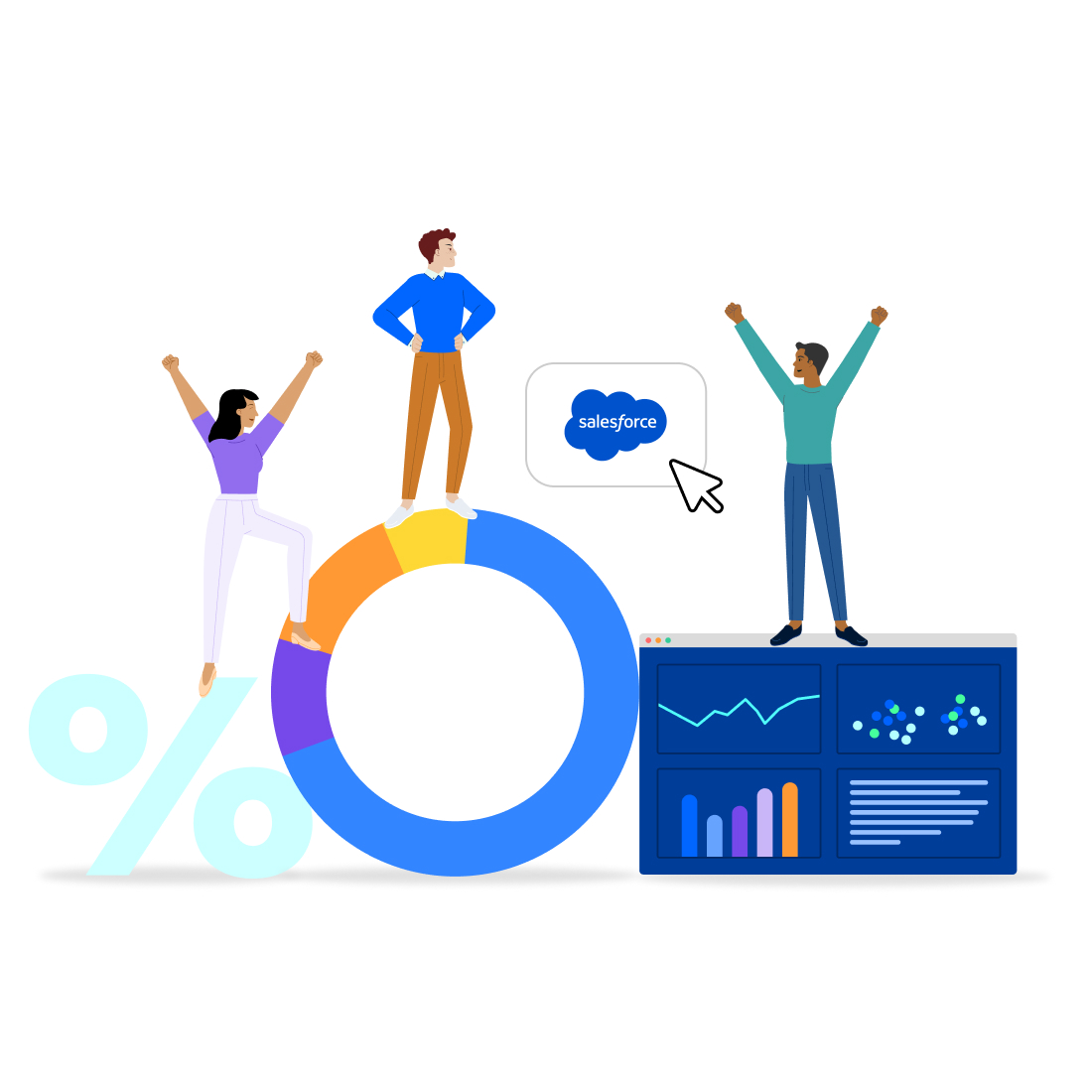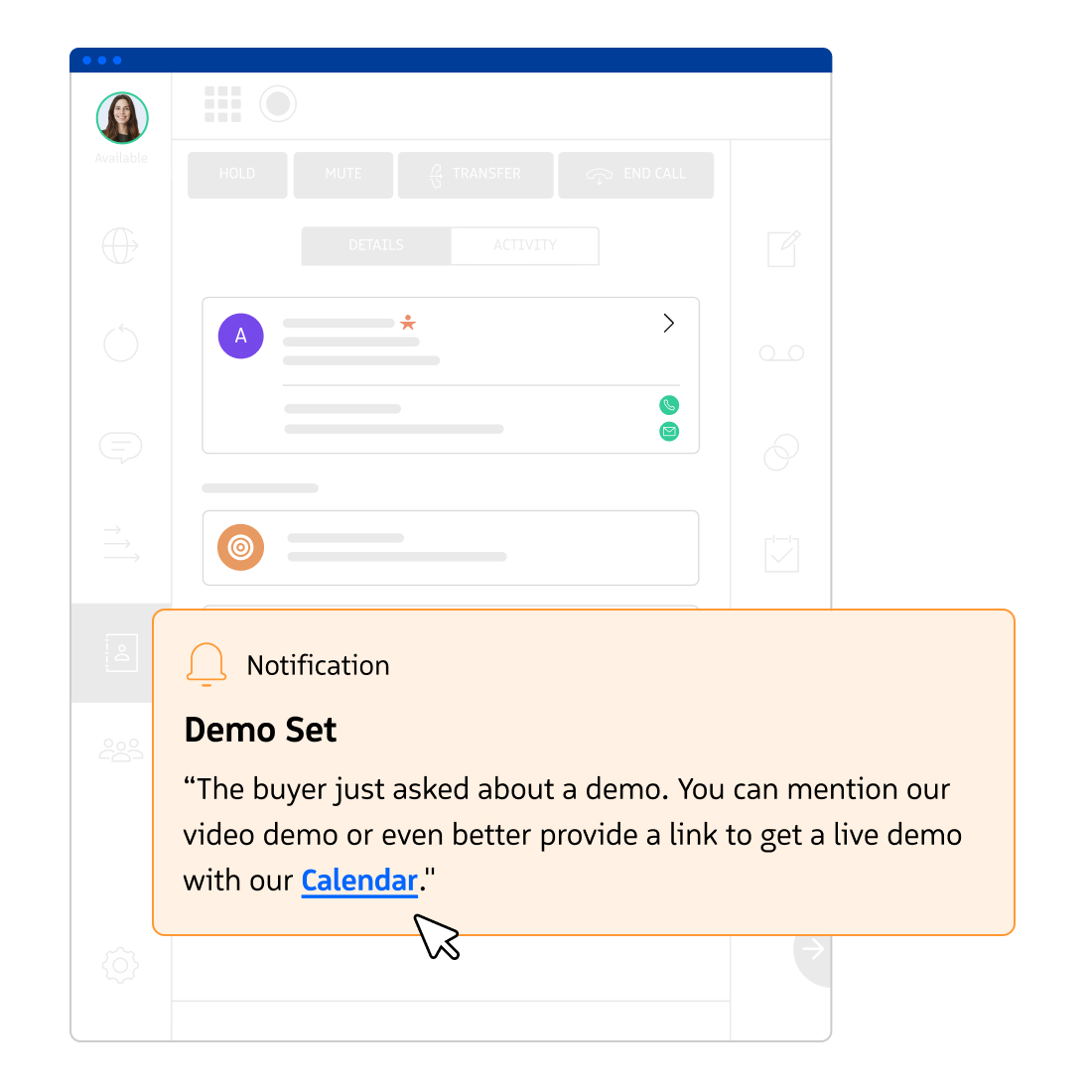Revenue Intelligence Platform Requirements: The Complete List
If you’ve been following the evolution of B2B sales, you’ve likely encountered the idea of a revenue intelligence platform. But with all the different types of platforms built for revenue teams (and more popping up all the time), it can be difficult to differentiate between their capabilities.
The truth is that in a turbulent economy, revenue intelligence software is only getting more and more important. Companies need the ability to make smart revenue forecasts, identify risky deals and ensure that opportunities are getting the follow-up that they deserve.
This post will demystify revenue intelligence and give you insight into how this new category of B2B sales technology can help your team gain a powerful advantage over the competition.
What is Revenue Intelligence?
 Let’s start by defining what revenue intelligence actually is. At its core, revenue intelligence is simply using data to sell more effectively. Revenue intelligence platforms make this possible by using the three As: artificial intelligence, algorithms and automation to increase visibility across the entire customer lifecycle. But far more importantly, revenue intelligence platforms surface insights that can make revenue teams (including Marketing, Sales, Finance, and Customer Success) more effective.
Let’s start by defining what revenue intelligence actually is. At its core, revenue intelligence is simply using data to sell more effectively. Revenue intelligence platforms make this possible by using the three As: artificial intelligence, algorithms and automation to increase visibility across the entire customer lifecycle. But far more importantly, revenue intelligence platforms surface insights that can make revenue teams (including Marketing, Sales, Finance, and Customer Success) more effective.
Make no mistake about it, there is an art to sales and marketing, but there is also a science. Ignoring the tools at your disposal is going to put you at a wild disadvantage to teams that are fully leveraging every tool available.
Think about it this way: thousands of years ago, the best sailors relied on intuition and the position of the stars. But there’s no way that those ancient navigators could compete with a mariner in a modern vessel equipped with tools like GPS and radar.
Some key functions of a revenue intelligence platform include:
- Capturing engagement in CRM and transforming them into insight
- Delivering next best actions to reps
- Automated prioritization
- Revenue forecasting
- Out-of-box dashboards that give insight throughout the entire sales cycle
Why Does Revenue Intelligence Matter?
Revenue intelligence is more than a category of technology, it’s a movement; a new way of thinking about sales. Revenue intelligence requires admitting that, as human beings, our intuition isn’t always accurate.
Without a Revenue Intelligence Platform…
A sales rep once told me a story that’s common to virtually every B2B sales rep. She was working a deal that she really believed was going to close. She spent hours working on this deal, based on a hunch. In the time she spent talking to one deal influencer after another, she neglected to work other deals that she thought were far less likely to bear fruit. Then, after months of follow-up conversations, she realized the truth: the deal was never going to close.
Now let’s imagine she had a revenue intelligence platform at her disposal. She could have gained a wealth of insights that would have revealed red flags about this deal. An AI-powered conversation intelligence solution might have surfaced that the buyer sentiment wasn’t as positive as she thought it was.
With a Revenue Intelligence Platform
She might have also compared this demo to other demos and seen that buyers that turned into customers had offered far more objections. While this may sound counter-intuitive, negotiation expert Chris Voss and other sales thought leaders frequently discuss how getting a “no” is often necessary to getting a “yes.”
Meanwhile, the revenue intelligence platform could have automatically surfaced actions that she should have been taking with other accounts, actions that may have seemed counter-intuitive. Perhaps buyers that her intuition told her were not likely to close, in fact were.
The Benefits of Revenue Intelligence
There are several important benefits to implementing a revenue intelligence platform.
Predictability
Using Revenue Intelligence software can help organizations make smarter and more accurate revenue predictions by aligning sales, marketing, and customer teams around a common purpose of generating customer lifetime value and a superior customer experience.
Breaking Down Silos
Large, complex enterprises can become far more agile by breaking down functional silos that exist between revenue teams. By aligning around shared data, revenue teams can move faster, fill in content gaps, focus on the leads most likely to convert and take actions to maximize customer lifetime value.
More Effective Coaching
Revenue intelligence tools can provide managers with the insights they need to focus their coaching sessions far more effectively. Knowing which conversations need to be coached and see what top performers are doing differently can help managers operate efficiently and make a huge impact.
Turnkey Revenue Operations
One of the most important benefits is that it makes transitioning to a Revenue Operations (RevOps) model a lot easier. We recently collaborated with Revenue Enablement Institute to interview hundreds of sales professionals. That research found that “the perceived amount of change involved and the time and commitment it will take to realize benefit from a Revenue Operations model” was one of the biggest challenges to adopting a RevOps model. But the right revenue intelligence platform can automatically set revenue teams on the path to success.
You can check out a summary of our research by watching this webinar below featuring Ray Rike from RevOps Squared and DemandBase CMO Jon Miller.
Who Needs a Revenue Intelligence Platform?
The best thing about a revenue intelligence platform is how many roles and departments benefit through implementation. Here are some of the roles that need a revenue intelligence platform and an explanation of how it can give them a competitive advantage.
CEOs
CEOs and other CXOs (especially in industries with challenging sales cycles) can generate higher valuations by focusing their revenue teams around the buyers that are most likely to become customers. Revenue intelligence can help leadership teams create a culture of continuous improvement while eliminating price, margin, and revenue leakage throughout customer journeys.
Sales Leaders
Sales leaders can help account executives focus their efforts on the opportunities that are most likely to close. They can also make smarter revenue predictions and help ensure that all reps are taking the right actions to hit goals.
Sales Managers
Managers can focus their time and efforts more effectively. AI can automatically surface which calls to listen to and provide insights that reveal how new reps and middle performers can better model the conversational techniques of top performers.
Marketers
In a RevOps model it’s not just about generating leads, marketers are on the hook to generate leads that will actually become opportunities and customers. Having insight into the entire customer journey can help ensure that marketers are targeting the right personas and creating content that salespeople can use to move customers through their journey efficiently.
Sales Operations/RevOps/Sales Enablement
Sales and RevOps professionals can help break down functional silos and align revenue reams around shared data and KPIs. They can easily identify opportunities for automation and optimization and can provide sales reps and marketers with insights that can help them operate far more effectively.
Sales Reps
Sales reps need guidance and next best actions that ensure they are always moving the right deals forward. The goal is to replace guesswork with data-backed prescriptions that make it easier for reps to achieve the goals. This will not only result in better rep performance, but better rep retention.
What are the Requirements of a Revenue Intelligence Platform?
When you’re ready to begin evaluating revenue intelligence solutions, it’s important to understand that there are going to be some huge differences. Some systems may bill themselves as revenue intelligence, but only provide a small piece of the revenue intelligence pie.
To help you in your evaluation of revenue intelligence providers, we’ve identified ten of the most important requirements you should look for when evaluating platforms.
Automatic capture of interactions – One of the most important features of revenue intelligence should be automatically capturing interactions in CRM. This should include recordings of conversations, dispositions, conversation transcriptions and more.
=Revenue forecasting is an essential part of Revenue intelligenceRevenue and pipeline forecasting – real-time engagement data that helps diagnose and manage pipeline and make smarter revenue forecasts.
Seamless CRM integration – One of the biggest deterrents to successfully implementing RevOps is when data is siloed in disjointed platforms. A revenue intelligence solution should solve this by ensuring that all data is housed in your CRM. For example, the Revenue.io platform syncs with Salesforce in real-time, ensuring that all critical data is captured in Salesforce where it belongs.
Conversation Intelligence – conversations themselves need to be captured, measured and automatically mined for insights that can help managers coach reps to be more effective. Conversation intelligence can surface insights that can help identify when demos are going well or when deals are likely to move forward. Likewise, they can help identify when conversations are indicators that a deal might not be likely to close.
Outbound productivity insights – It’s crucial to know whether reps are productive enough to hit goals. As an example, our RingDNA Dialer for Salesforce can vastly improve the amount of dials that reps can make each day. But our revenue intelligence insights help our customers determine what the ideal number of daily dials is in order to hit opportunity and revenue goals.

Real-time guidance is a key component of a revenue intelligence platform
Pipeline Insights – Make sure that there are insights that can help you evaluate the overall health of your pipeline to ensure that marketers are providing enough leads and the right leads.
Deal and Opportunity Insights – Revenue intelligence should help you answer questions like: where are opportunities getting stuck and why?
Lead Response Insights – Study after study shows the importance of fast lead response time. It’s crucial to ensure that reps are following up with high priority inbound leads from forms fast enough to convert them.
Automated Prioritization – Reps need to know which accounts, inbound leads and actions to prioritize. A great revenue intelligence platform will help automatically prioritize and reshuffle actions in real time to help reps focus on the action most likely to result in revenue.
Real-time guidance and notifications – Insights from revenue intelligence solutions are far more valuable if they can be made actionable in real time. Look for ways that revenue intelligence can be used to automatically provide reps with guidance in real time as well as influence workflows.
If you’re currently evaluating revenue intelligence solutions, our team would be happy to walk you through why Revenue.io is the most powerful revenue intelligence platform for Salesforce. Book a demo here.